Aussie kids are kinder and willing to help others after two years of living the Covid-19 pandemic
Punishing restrictions and bouts of remote learning have not stopped these Australian students from helping others in need.
Coronavirus
Don't miss out on the headlines from Coronavirus. Followed categories will be added to My News.
Exclusive: It has been been two unsettling years, but children from some of the country’s most locked down states have proven there is a silver lining to the pandemic.
After punishing restrictions and bouts of remote learning, kids in New South Wales and Victoria have emerged as some of the most grateful in Australia.
More than 60 per cent of parents from those states told a World Vision Australia study their children were showing greater maturity and were more thankful than before the pandemic struck.
Parents from South Australia and Queensland felt similarly, despite not living through the same extended lockdowns.
Overall, nearly half of the 1057 Australians surveyed (45 per cent) felt their children had developed a heightened awareness of international issues.
World Vision Australia chief executive Daniel Wordsworth said while millions people were affected by the pandemic, children were “hit disproportionately hard by lockdowns”.
“Children were cut off from friends, family and school communities, many for months on end so it’s wonderful to see that they have taken away a few positives from the experience,” he said.
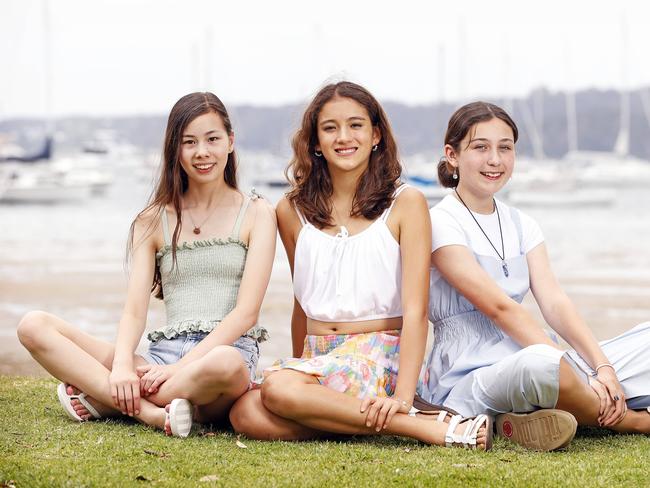
“For the first time in living memory, people have been globally united in the suffering caused by Covid-19, and this research confirms children in Australia becoming more conscious of those less fortunate, whether that’s in their own community or overseas.
“They are also more grateful for the blessings in their own lives. This is a good thing, as we know a caring, thankful child becomes a caring, generous adult.”
Paediatric psychologist Deirdre Brandner, who worked with families throughout lockdown, said the pandemic allowed everyone to “slow down” and not take “everyday things for granted”.
Ms Brandner said children in particular had more unstructured time in their day, which allowed them to “connect more” with their siblings and parents.
“Children, like many of us, have learnt not to take the everyday things for granted. The joy of seeing a friend, going to a birthday or trip to the beach has taken on a new meaning for all of us,” she said.
“Even school which was once a dreaded environment for many has taken on a much more positive status.”
“Relationships, friends and family have become much more precious to us during this time. As a result children are motivated to have real joyful experiences with others. They can be observed to be kinder, gentler and more open to friendship opportunities.”
Meanwhile, those surveyed identified donating to charity and supporting businesses impacted during Covid as a priority in the lead up to Christmas.
And with most border restrictions easing, 70 per cent of Australians said they were looking forward to reuniting with family and friends.
‘I WANTED TO BE AWARE’
Charlotte Worthley and Maddie Moss used their final year of high school to help some of the most vulnerable in their community.
Charlotte supported disadvantaged children through the charity Kickstart for Kids, while Maddie raised awareness and funds for mental health charity Skylight.
“I wanted to be aware of the issues facing a lot of young children,” she said.
“I have learnt that kindness and compassion goes a long way for everyone, particularly children who might not receive this sort of care from their home life.”
While South Australia bore less of the brunt during the pandemic, the pair from Walford Anglican School for Girls said the “constant fear” of an outbreak and the emergence of new strains “took its toll on people”.
“The increasing demand of treatment due to Covid-19, has severely limited accessibility of the treatment required for people suffering with mental illness,” Maddie said.
“I hope that one day soon mental health and mental illnesses can be discussed and treated just the same as physical illnesses.”
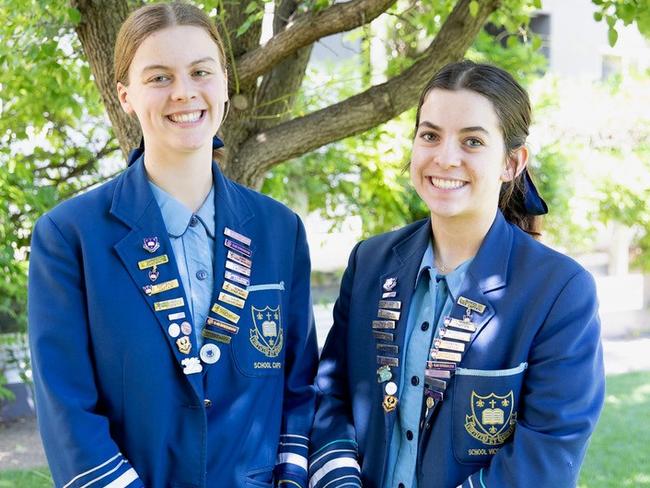
‘WE WANTED TO DO WHAT WE COULD TO HELP’
When most people spent lockdown confined to their homes, best friends Tara Hayes, Ruby Wiles, Annika Milotic and Renia Bell made it their mission to help the most vulnerable.
The year six students from St Luke’s Grammar in Dee Why raised nearly $2000 to support Kids Giving Back (KGB), who cooked meals for the homeless community.
During lockdown, the charity had seen an increase in demand for meals by 25 per cent after many food rescue organisations were unable to operate.
And while KGB were no longer able to make meals through their programs, they relied on supporters to help fund their cook for the homeless community.
“We had learned that homelessness was increasing during the pandemic and was affecting people of all ages, including families and kids our age, so we wanted to do what we could to help,” Ruby and Annika said.
The contribution made by the girls allowed 330 hot meals to be cooked for people in need.
“What we have learned from this experience is to appreciate what we have, and it made us realise how hard homeless people’s lives could be, especially in the Covid situation going on,” Renia and Tara said.
“It made us appreciate all these things that we have, that we might take advantage of.”
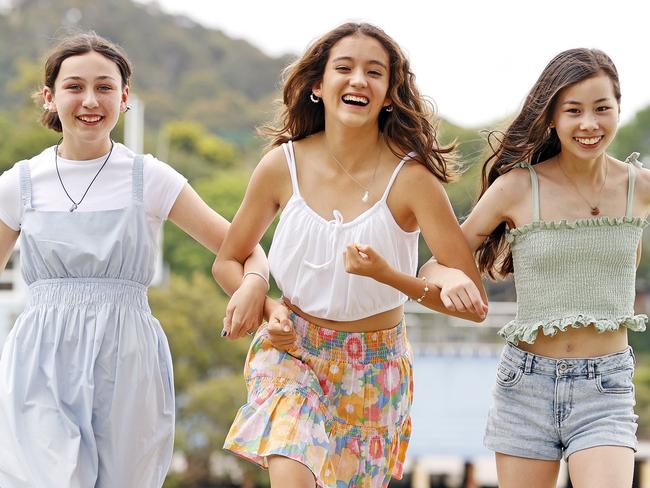
‘WE’VE MADE OUR BIGGEST DONATION’
Teenagers Amelie Smith and Janke Strydom donated $4000 to World Vision during the pandemic.
The money came from their environmental charity Sustainable Succulents, which they established in their final year of primary school.
Sustainable Succulents recycles pots and containers, which would have otherwise ended up in landfill. Amelie and Janke then sell the pot plant cases at Melbourne markets.
“We started a not-for-profit business purely to help others, not for our own benefit, but to help the environment as well, because that’s what matters to us,” Amelia said.
“We had bright visions for 2020, aiming to continue these markets and help raise awareness until lockdown struck. With this came harsh restrictions and unfortunately, no more markets for quite a while.
“But the time spent in lockdown allowed us to analyse our work so far, and was the time where we’ve made our biggest donation.”
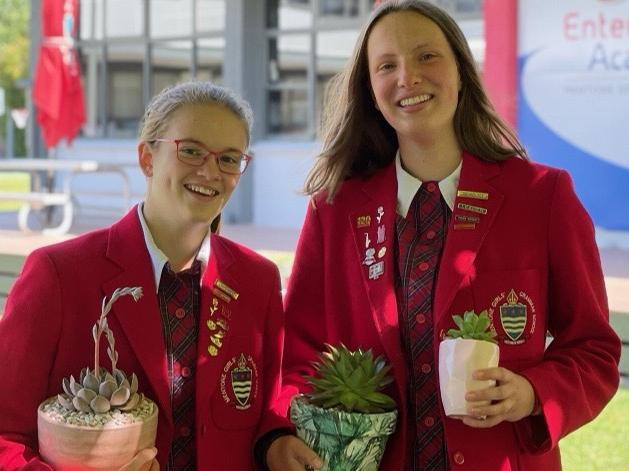
‘I’VE BEEN ABLE TO PUT A SMILE ON SOMEONE’S FACE’
When Lily Wilson’s eyes opened to the number of homeless people in her community, south of Brisbane, during the pandemic, she felt a need to help.
The 14-year-old student from Logan used social media to call for donations for care pack items including chocolate treats, shampoo and sanitary items.
With the help of her family, Lily was able to distribute more than 200 gifts directly to the homeless last year.
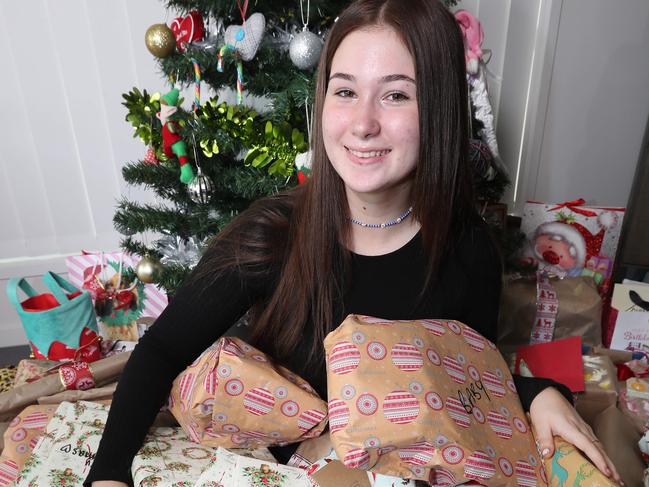
“I gathered all these items and made individual care packs that I distributed on Christmas Eve to those in need,” she said.
“What I have benefited the most is that I have been able to put a smile on someone’s face and show that there are people that care.”
The Australian Bureau of Statistics estimates about 21,000 people are homeless in Queensland.
And in the lead up to Christmas, Lily hopes to bring a second round of joy with more festive gift packs.
More Coverage
Originally published as Aussie kids are kinder and willing to help others after two years of living the Covid-19 pandemic





